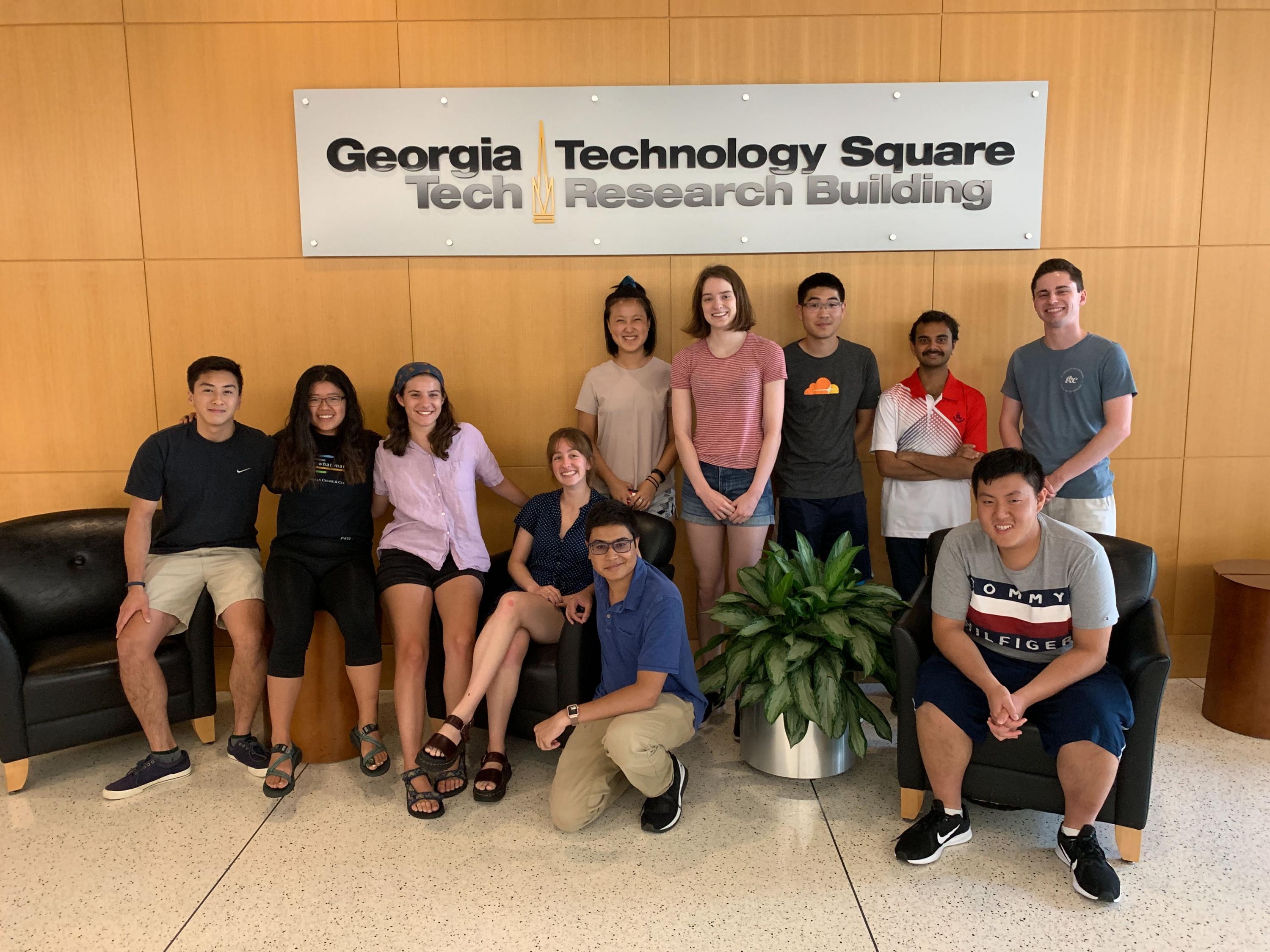
Students from Georgia Tech and universities across the country are participating in two summer programs to support local communities exploring smart technology and development.
Students from Georgia Tech and universities across the country are participating in two summer programs to support local communities exploring smart technology and development.
The Civic Data Science (CDS) program supports a 10-week immersive research experience for undergraduate students interested in contributing to the field of data science. The focus of the program is data, analytics, and user interaction of data science in the civic sector, a research area that has not traditionally benefited from advances in computing.
This summer, ten students from universities across the country are partnering with communities and Georgia Tech researchers participating in the Georgia Smart Communities Challenge. Georgia Smart, which is part of Georgia Tech's Smart Cities and Inclusive Innovation initiative, is a program that enables local communities to envision, explore, and plan for their smart futures.
Students are researching topics related to smart communities: sea-level flooding, economic development and housing data, and the impact of connected vehicle infrastructure on emergency response times.
Kutub Gandhi, a rising senior in computer science at Rice University in Houston, Texas, is part of the Smart Sea Level Sensors team researching sea-level rise in Chatham County. The team is working closely with Senior Research Scientist Russ Clark to analyze the accuracy of data coming from a network of 30 internet-enabled sensors that monitor flooding.
Through the CDS program, Gandhi has explored potential future career paths. “Last summer I worked at a company to see the industry side of life. This summer the CDS internship has helped me see that I want to do research long term, while also giving me experience to put on my resume.”
He has also discovered areas of study not offered at Rice and made new connections with other students and researchers. “The people I’ve met have been amazing.”
Other Civic Data Science projects include:
Albany Hub, which provides residents of the City of Albany with open data about energy efficiency, repairs, rental assistance, and more. Faculty mentor: Omar Asensio, Assistant Professor, School of Public Policy
GwinNETTwork, a connected vehicle master plan for Gwinnett County which examines how to decrease congestion and crashes while reducing emergency vehicle wait times along Peachtree Industrial Boulevard. Faculty mentor: Angshuman Guin, Senior Research Engineer, School of Civil and Environmental Engineering
Students will present their final projects on Wednesday, July 22 from 6-8pm in the Technology Square Research Building pre-function area. The program is part of the National Science Foundation’s Research Experiences for Undergraduates (REU).
Georgia Smart Community Corps
The Civic Data Science teams are also partnering with students from the Georgia Smart Community Corps, a full-time summer fellowship for Georgia Tech students. The goal of the fellowship program is to create livable and equitable communities through smart technology and data implementation. Like the CDS teams, fellows also work directly with cities and counties from the Georgia Smart Communities Challenge.
Akhil Chavan, who graduated from Georgia Tech in Spring 2019 with a master’s degree in engineering, is on the Smart Sea Level Sensors team. The team is working with the Chatham Emergency Management Agency (CEMA) to examine how to visualize and display data from the sea level sensors more effectively.
Chavan has been interested in climate change and environmental engineering since high school and continued to study these subjects as an undergraduate student at Georgia Tech. As he pursued his Master’s degree, he took more data science, data analytics, and computer science classes. “I wanted to see the crossover between data and computer science concepts with environmental and sustainable engineering,” Chavan said.
He called the fellowship “valuable” for connecting with local communities. “Usually in the research field you’re doing backend work that’s slow-moving and hard to visualize the end goal,” he explained. “With these [Georgia Smart] projects, there’s a lot of support within the cities. It’s nice to offer our expertise, stuff we’ve been learning about for the past couple of years. The community and the people make it a little more applicable.”
In addition to working directly with the communities, each team in the fellowship program collaborates with one or more Georgia Tech professors. Chavan’s team worked closely with Clark and Kim Cobb, professor in the School of Earth and Atmospheric Sciences and director of the Global Change Program.
Chavan said Cobb manages the team like a business – small teams and focus groups who have their own “clients.” The groups touch base every week to share information and updates.
The Strategic Energy Institute funds the Georgia Smart Community Corps; the program is a joint collaboration with the Center for Serve-Learn-Sustain, Center for Career Discovery and Development (C2D2), and the Student Government Association (SGA).